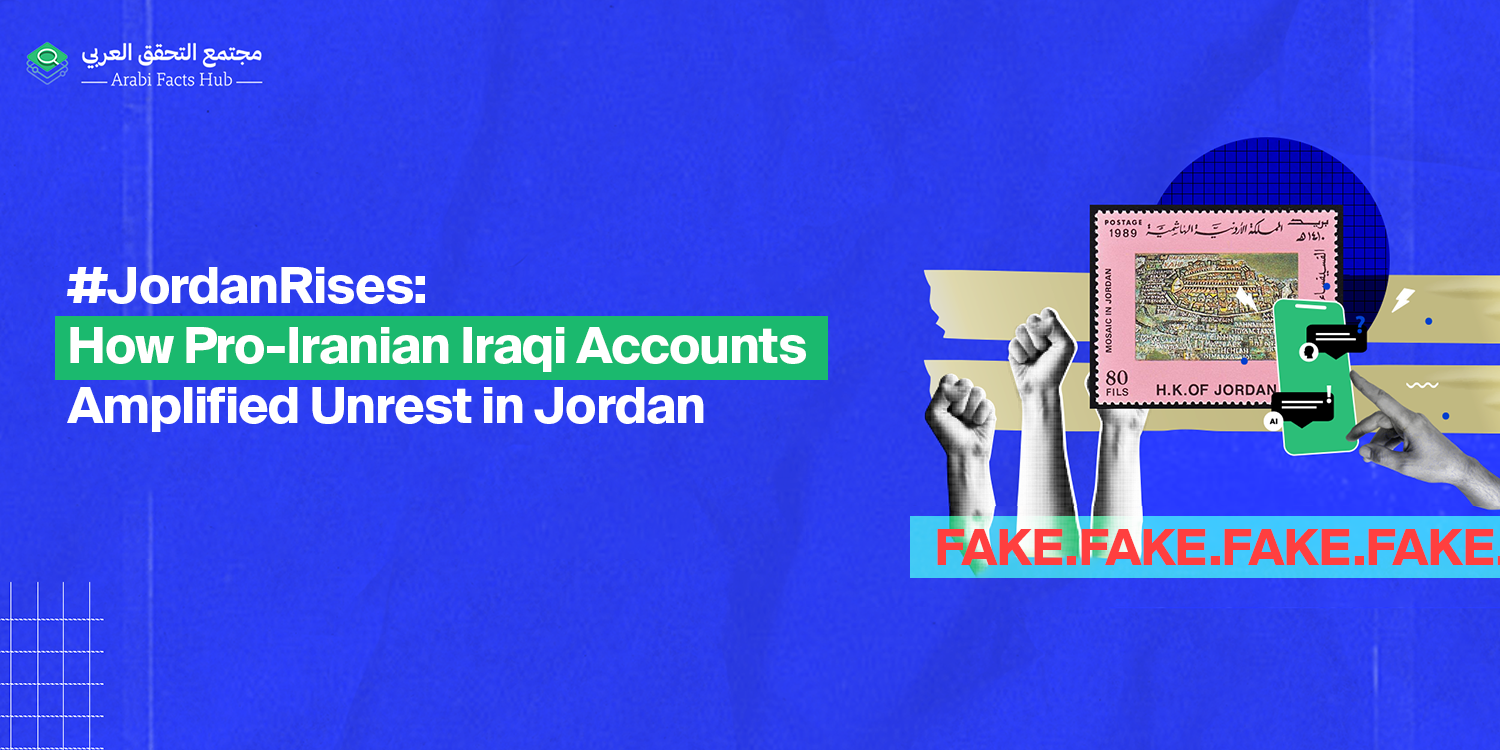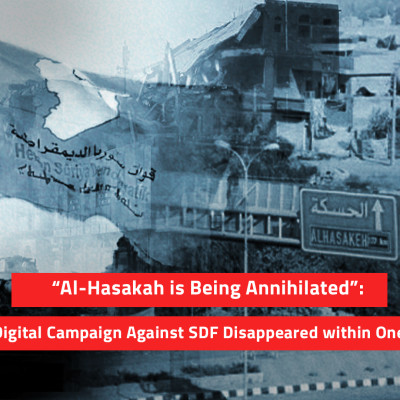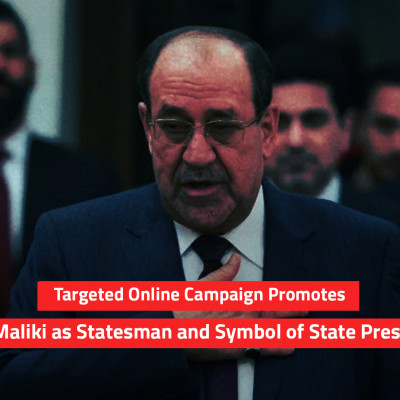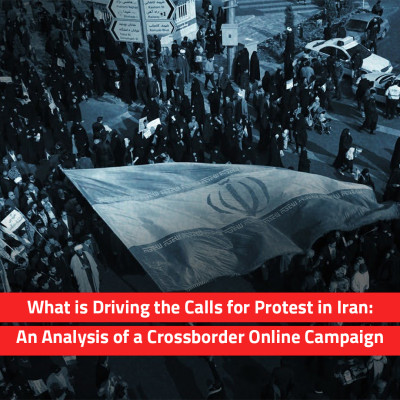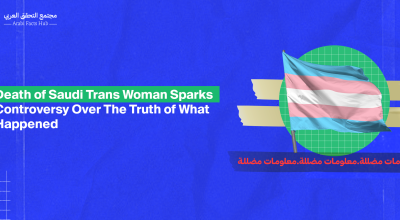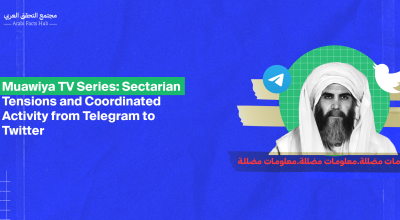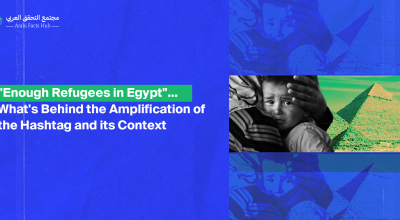| Yemen | Scope |
| December 2022 | Launch date |
| Political | Classification |
Accompanying the recent protests in Jordan was a variety of hashtags reflecting discontent over the Jordanian government's decision to raise fuel prices. Meanwhile, pro-Iranian Iraqi accounts resurfaced an old hashtag, intensifying their tweets through it with the intent to influence and magnify the unrest.
At Arabi Facts Hub, we closely monitored the network of Iraqi accounts that activated the hashtag and made several noteworthy observations.
What Happened?
Following the hike in fuel prices on November 30, Jordan experienced a significant strike by truck drivers, followed by nighttime street protests that police attempted to quell, resulting in the tragic death of a police officer in a shooting incident.
During this period, individuals affected by the fuel price increase turned to social media to share scenes and commentary at the backdrop of the protests. The government concurrently banned the TikTok app, which contained numerous recorded clips related to the unrest.
While the streets of southern Jordan were ablaze with protests and clashes between police and demonstrators, the hashtag #JordanRises was revitalized, initially surfacing in July 2012.
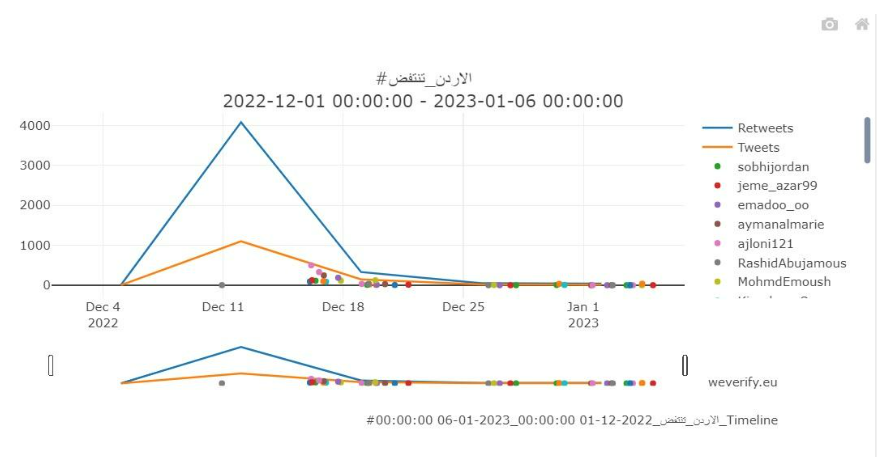
Throughout December 2022, the hashtag garnered 1286 tweets, 4500 retweets, and 18754 likes. At least 862 accounts utilized the #JordanRises hashtag, with the interaction map on the hashtag indicating many Iraqi accounts as the most active tweeters.
Among the most prominent of these accounts were: @mohmmdalrsam (17 tweets), @Mohamedahwaz922 (16 tweets), @Mohamedahwaz922, @sobhijordan (16 tweets), @JarmtLyth (15 tweets), @Mushaima85 (14 tweets)."
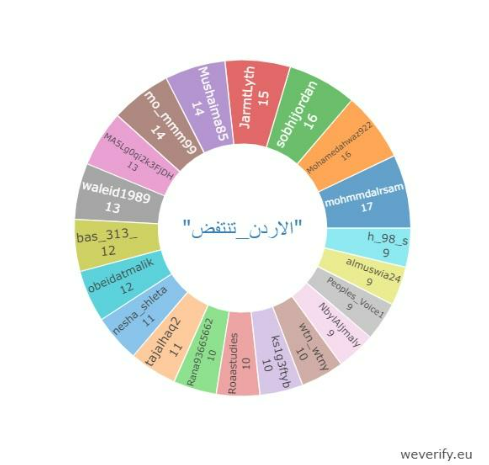
A diagram illustrating the most active accounts tweeting on the #JordanRises hashtag - InVID
The accounts posted images of Abu Mahdi Al Muhandis, deputy head of the Popular Mobilization Forces, as well as images of former commander of the Iranian Quds Force Qasem Soleimani, both of whom were killed in a US airstrike in Baghdad. The images were accompanied with the logo of the Popular Mobilization Forces.
When protests erupted in Jordan, these accounts became highly active, sharing videos purportedly from the demonstrations, accompanied by negative commentary against King Abdullah II and the Jordanian government, in addition to calls for the Jordanian army to intervene in favor of the protesters.
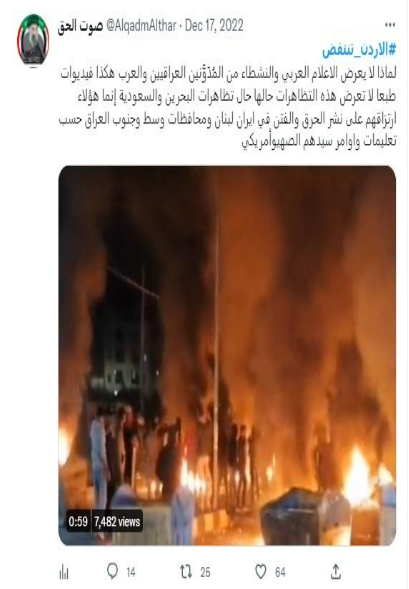
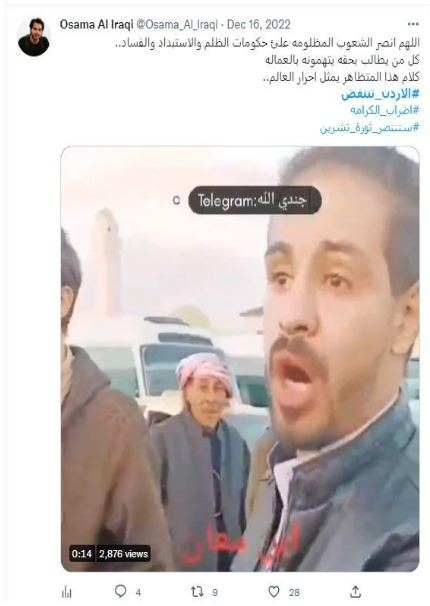
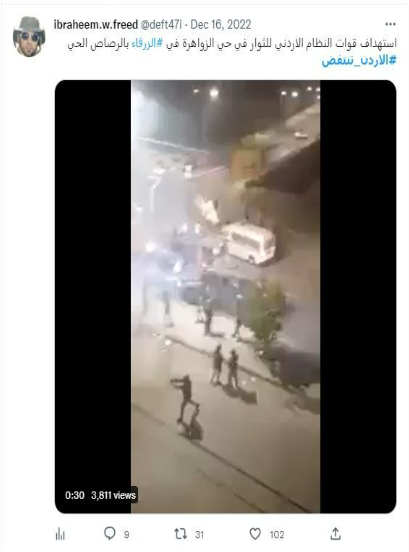
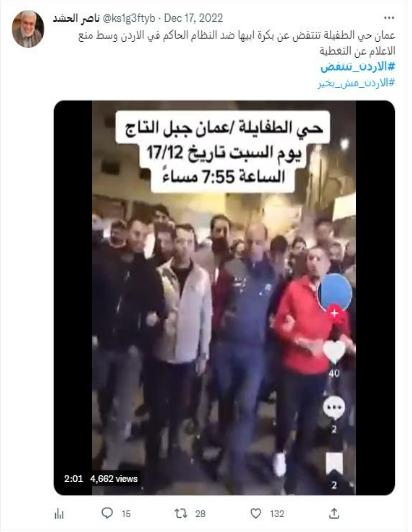
Iraqi accounts shared old videos, falsely claiming they were related to recent confrontations between police and protesters, such as the video below, which was found to be from previous clashes in Ar-Ramtha area of Jordan in 2019.
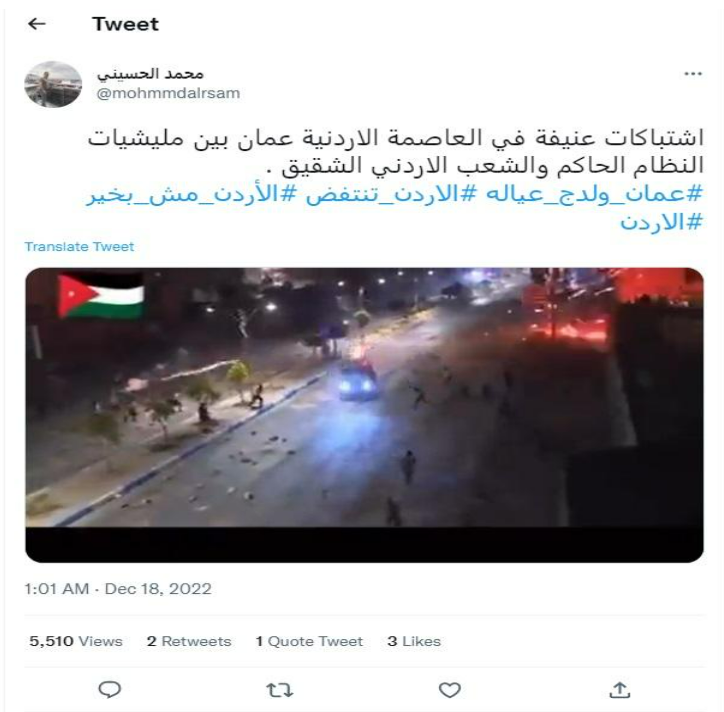
Furthermore, inaccurate news about a "coup" in Jordan and the suspension of shipping with Egypt was disseminated. Some even called for the Jordanian army to defect and form a "Free Army."
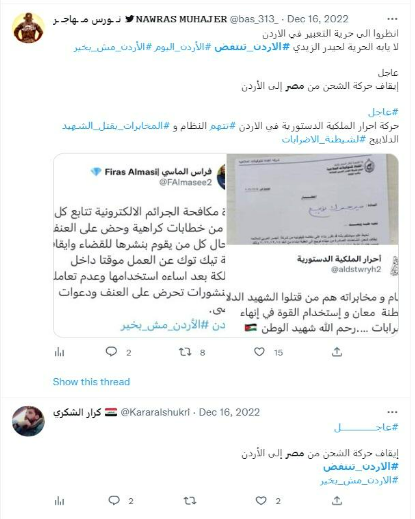
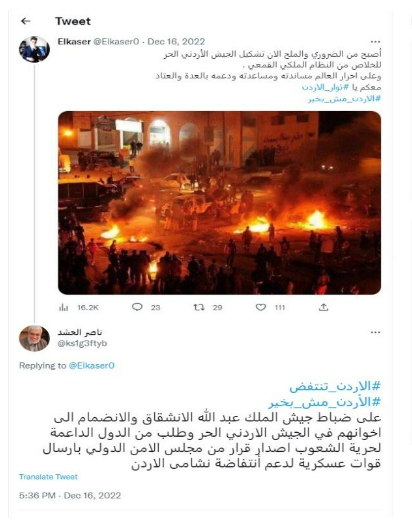
There were also accounts from Syria and Yemen tweeting on the #JordanRises hashtag. The common theme among the content of Iraqi, Syrian, and Yemeni accounts was expressing support for political and military groups supported by Iran, such as the Bashar Al Assad regime in Syria, Hezbollah in Lebanon, the Shiite Popular Mobilization Forces in Iraq, and the Houthis in Yemen.
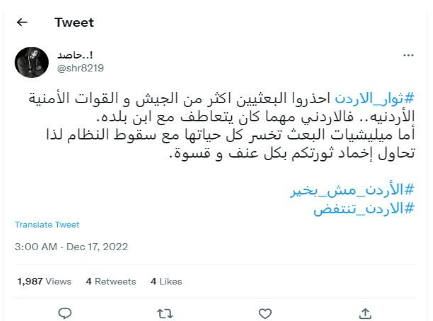
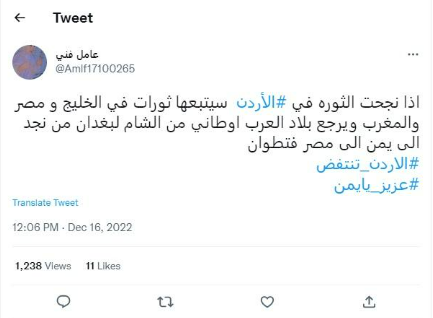
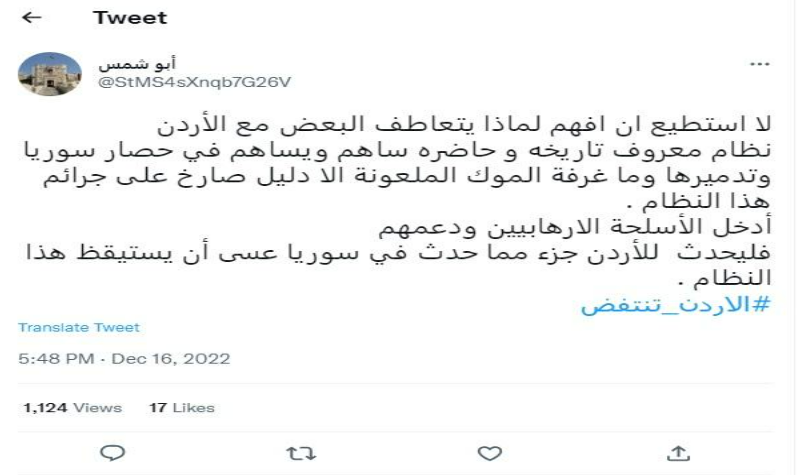
In summary:
- Iraqi accounts revived an old hashtag (#JordanRises) to amplify the event.
- These accounts are linked to groups loyal to and supported by Iran.
- They shared old video clips misleadingly associated with recent Jordan protests.
- False news was disseminated via these accounts.
Tools utilized:
– InVid
– Tweetdeck
